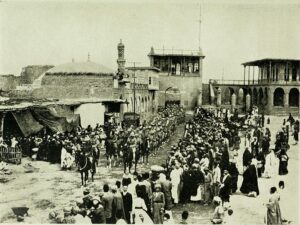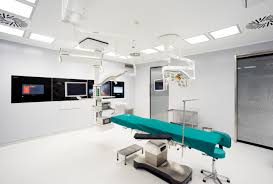Health System: A Comprehensive Islamic Review

Islamic history is not only a story of religious principles and conquests but also includes unparalleled services in the field of health and medicine,A health system has always been a fundamental part of any society and Islamic history has many references to health that formed the basis of the world’s best medical systems. In this article, we will describe in detail the health system, principles of medicine, and their evolution in the context of Islamic history.
1.Importance of health in the early Islamic period
Islam has always given importance to health and there are many commands in the Qur’an and Sunnah that encourage a healthy life. Cleanliness is called a part of faith in the Qur’an:
**”Surely Allah loves those who repent and loves those who are pure“** (Surah Al-Baqarah 2:222).
This verse reflects how important cleanliness and health are in Islam. In addition, the Prophet ﷺ always promoted cleanliness, dietary principles, and physical fitness, which is in line with many of the principles of today’s modern health system.
2. Fundamentals of Islamic Medicine

During the early period of the IslamicEmpire, medical sciences developed greatly. Arabic medicine is also called “Greek medicine” or “Hispanic medicine” because it includes a large part of Greek and Iranian sciences, which were further developed by Muslim scholars.
Scholars such as Ibn Sina (Avicenna) examined medical sciences from new angles and his works, such as “Al-Qanun fi al-Tabb”, are still considered standards around the world. Islamic medicine introduced many new methods of diagnosis and treatment of diseases that are still used in modern health systems today.
3. Evolution of Hospitals in the Islamic World
During the Islamic regime, hospitals were established with a new thought. These hospitals were popularly known as “Bimarstan” or “Dar al-Shafa”. Islamic hospitals were not only centers of treatment but also centers of education and research.
The “hospitals” established in **Baghdad** are considered to be the first organized hospitals in the world where free treatment was provided to patients. Hospitals of the time were early models of the modern health system, which included various disciplines such as surgery, medicine, and nursing.
4. Islamic principles and modern health system

In the health system built on the basis of Islamic principles, three things were mainly given importance:
1. **Cleanliness**: Physical and spiritual cleanliness was always preferred.
2. **Prevention of disease**: In the light of the sayings of the Prophet ﷺ, preventive measures were taken to prevent diseases.
3. **Nutrition**: Through the dietary teachings given in the Qur’an and Sunnah, people were encouraged to have a balanced diet.
Today’s modern health system also follows these three principles, such as preventive medicine, hygiene standards, and the principles of a balanced diet.
5. Global Islamic Medicine Services
The extent to which medical science was developed in the Islamic period, it reached different regions of the world. Centers of medical education and treatment were established in Cordoba, Spain, where medical experts from Europe also came to learn. Islamic medicine played an important role in laying the foundations of the modern world health system.
The famous names of medicine such as **Al-Razi**, **Ibn Nafis**, and **Ibn Rushd** not only developed the medical sciences but also laid the foundation of the European Renaissance.
6. Islamic Instruction and Modern Medicine

Given the importance of health in Islamic teachings, many modern research studies are still being conducted in accordance with Islamic medicine and Quranic principles.The Russia-Ukraine War: Demands for Peace and Justice in the Eyes of Islam/Reed mor
For example, modern science proves that principles taught by the Prophet, such as ablution, have positive effects on physical health, and the Islamic practice of consuming a balanced diet (such as dates, milk, honey) continues today. Complies with the principles of modern nutrition.
7. Health care systems in Islamic societies
Even today, many Muslim countries are organizing their health systems in the light of Islamic principles. In Saudi Arabia, Iran, and Turkey, services are being provided in accordance with Islamic principles in the health sector. These countries not only use modern medical technology but also serve the people according to Islamic principles.
8. Concluding Thoughts
Islamic history and health system are closely related. The services rendered by Muslim scholars in the field of medicine are still valued worldwide. Many principles of the modern health system are derived from Islamic history. Islamic principles of cleanliness, disease prevention, and a balanced diet continue to be effective in health systems around the world today.
Through this article we have highlighted the importance of health system in Islamic history and its usefulness in modern world.